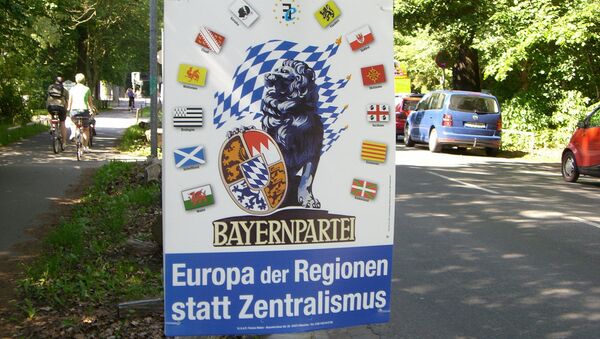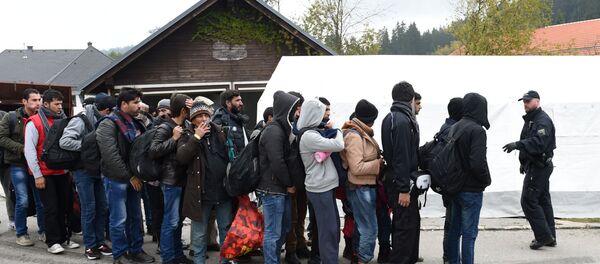It calls for "competitive federalism" from the central government, and greater direct democracy including a referendum on independence from Germany.
Following elections in 2013 the party gained representation in four of Bayern's seven districts, and the recent defections give the independence movement six percent of seats on Munich's city council. Amann said the party aims to use its newfound influence to push for a referendum on independence from Germany.
"In my opinion our party remains to a great extent faithful to our principles. We have never betrayed our liberal-conservative basis, as perhaps other parties have done. Our party is still relatively small and the atmosphere in our ranks is no doubt more benevolent than other parties," Amann said.
"We position ourselves as a liberal-conservative party of the center-right. We are absolutely not right-wing populists."
"What distinguishes us from other parties on Germany's political spectrum is definitely Bavarian sovereignty. That means that the goal of our party is the state independence of Bavaria, so that Munich no longer receives directives from Berlin. The Alternative for Germany manifesto does not contain this provision, nor does the Christian Social Union (CSU). Regardless of that party's statements about its independence from the CDU, it is nevertheless a regional wing of that party."
Amann explained that Bavaria's recent obligation to impose directives from the government in Berlin during the migrant crisis have made it more imperative that Munich receives greater autonomy.
"On the one hand we of course recognize the right to asylum. That means that people who are being persecuted on political grounds have the right to asylum. At the same time, in our view, Bavaria should decide for itself who can eventually come and who can't."
"That's why, at the moment, we don't see any serious alternative to border control. That doesn't mean completely closed borders. But only Bavaria can decide who can come and who can't come to Bavaria. And in today's situation we, unfortunately, do not see an alternative to border control."
"We are not planning any kind of fence between Bavaria and Germany. In principle we accept the Schengen agreement as a positive thing. Of course, if the situation develops in a way which confronts us with an uncontrollable flow of refugees from Germany, then we will be forced to impose controls on the border with the rest of Germany."
The politician explained that increased autonomy from Berlin also has a financial aspect, since an independent Bavaria would not have to contribute money for the rest of Germany.
"Bavaria finances one-quarter of the federal republic. If we were independent, that money would stay here with us. Our economic situation would be significantly better than it is today."
"Of course, that does not exclude certain neighborly help in a difficult situation, but only on a voluntary basis. In any case it means a rejection of the financial compensation that goes on between federal states, no small part of which is borne by Bavaria."
Amann said that Bavaria is hoping to follow the example of Scotland, which held a referendum on independence from the UK in September 2014, and that the party believes holding more referendums is the way to greater popular democracy.
"If there is a majority in those states calling for independence, then we give them our blessing. Our goal is a Europe of the regions, that is, a system where issues are resolved at the lowest level. The regions themselves will choose the form of governance."
"I wouldn't have a problem if the federal republic breaks up, but I also wouldn't have a problem if it remains in the same form, as our neighbor."
An independent Bavaria would also hold a referendum on membership of the EU, which is "too bureaucratic and centralized."
"In principle, we are not against the idea of European cooperation. The problem is the form that the EU has taken at the moment. This EU, unfortunately, has turned into a centralist monster which lays claim to ever more functions which would be more appropriate to a lower level."
"In my understanding the EU is an administrative unit, and I am always skeptical about treating administrative units like some kind of god."





